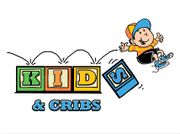A Parent’s Guide to Speech-Language Disorders in Kids

Children can start picking up lifelong language and speech skills by the time they reach their first birthday. However, kids develop these skills at different paces. It’s estimated that one in five children learn how to talk later than their peers. Despite these challenges, many little ones can overcome them by participating in early childhood education programs and working with specialists—such as speech-language pathologists. If you’re worried about your child’s communication abilities, consider this guide on how to identify and treat speech-language disorders in preschoolers.
How Are Speech-Language Disorders Identified?
1. Missed Milestones
As children grow older, they will hit various milestones that illustrate how their language skills are advancing. For example, kids may have a disorder if they are:
- Not babbling by seven months of age.
- Not using gestures by their first birthday.
- Having trouble playing with other children by three years old.
2. Communication & Comprehension Concerns
Parents should expect children to enhance their communication capabilities between the ages of three and four years old. At this age, a child may have speech-language development concerns if they cannot answer simple questions, aren’t using plural words, don’t form basic sentences to describe events, and have trouble being understood by others.
3. Professional Assessment
 If you notice any of the above signs, have your child visit a speech-language pathologist. The professionals conduct a variety of assessments to determine if a related disorder is present, and if so, which it is. Children’s primary care providers can also provide check-ups to see if the issues are linked to another condition—such as hearing loss or autism.
If you notice any of the above signs, have your child visit a speech-language pathologist. The professionals conduct a variety of assessments to determine if a related disorder is present, and if so, which it is. Children’s primary care providers can also provide check-ups to see if the issues are linked to another condition—such as hearing loss or autism.
What Can Parents Do to Address Speech-Language Disorders?
Parents can help their children avoid speech-language delays and disorders by finding ways to engage their communication abilities early on. For instance, reading with a child can help expose them to new words, learn pronunciation, and get familiar with sentence structure.
An early childhood education or preschool program can also introduce kids to unfamiliar concepts, teach them how to ask and answer questions, and socialize with peers. If a speech-language pathologist diagnosis a related disorder in a child, they may recommend a course of effective speech therapy solutions.
Through ongoing practice with their specialist and parents, kids can pick up skills that haven’t developed yet. Some activities used in therapy may involve letter pronunciation exercises, vocabulary memorization, and reading.
For more than 35 years, Kids & Cribs Child Enrichment Center has provided top-notch education and development resources for infants, toddlers, and preschoolers in Fort Thomas, KY. Supported by caring and qualified teachers, this child care center exposes young minds to a wide range of activities and lessons—all of which can offer speech and language development benefits. To learn more about the ways this school can help your child thrive, visit the early childhood education provider online. For questions about enrollment, call (859) 441-5888.
About the Business
Have a question? Ask the experts!
Send your question

